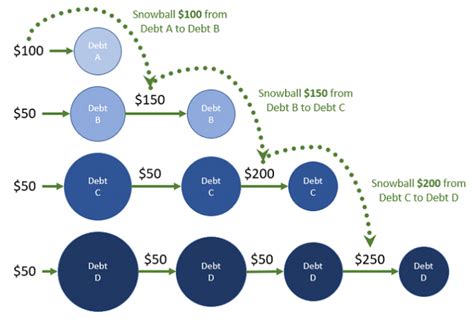
Block, formerly Square, is significantly increasing its investment in Bitcoin, signaling CEO Jack Dorsey’s firm belief in the cryptocurrency’s future, with plans to allocate 10% of its gross profit from Bitcoin products into purchasing more Bitcoin each month. This strategic shift underscores Dorsey’s long-standing advocacy for Bitcoin and represents a major commitment to its long-term potential.
Block’s renewed focus on Bitcoin comes as the company navigates the complexities of the financial technology sector, aiming to leverage Bitcoin’s capabilities for broader financial inclusion and innovation. The monthly investment strategy, announced recently, highlights a calculated approach to accumulate Bitcoin, aligning the company’s financial interests more closely with the cryptocurrency’s performance. This strategy is designed to be consistent, regardless of Bitcoin’s short-term price fluctuations, emphasizing a long-term investment perspective.
“We believe that Bitcoin has the potential to be the native currency of the internet,” Dorsey has stated numerous times, reinforcing his vision of Bitcoin as a transformative technology. This vision is now being translated into concrete investment actions, positioning Block as a prominent player in the Bitcoin ecosystem. The decision to allocate a fixed percentage of gross profit ensures that the investment scales with the growth of Block’s Bitcoin-related business activities.
Block’s involvement with Bitcoin extends beyond simple investment. The company is actively developing Bitcoin-centric services and infrastructure aimed at making the cryptocurrency more accessible and usable for everyday transactions. These initiatives include hardware wallets, payment solutions, and developer tools designed to foster a more robust and user-friendly Bitcoin ecosystem. By focusing on both investment and infrastructure development, Block aims to play a pivotal role in driving the adoption of Bitcoin on a global scale.
One of the key projects Block is working on is a decentralized Bitcoin exchange, tbDEX, designed to facilitate peer-to-peer Bitcoin transactions without relying on intermediaries. This initiative aims to reduce friction and enhance privacy in Bitcoin trading, aligning with the broader ethos of decentralization that underpins the cryptocurrency. TbDEX is still in its development phase, but it represents a significant step towards realizing Dorsey’s vision of a more open and accessible financial system powered by Bitcoin.
Furthermore, Block is investing in Bitcoin mining technology, aiming to make mining more decentralized and accessible to individuals. The company is developing custom mining hardware that is designed to be more energy-efficient and easier to deploy, potentially democratizing the mining process and reducing the concentration of mining power in large, industrial operations. This initiative reflects a commitment to the long-term health and security of the Bitcoin network.
The decision to double down on Bitcoin also reflects Dorsey’s broader philosophical views about the future of technology and finance. He has consistently advocated for decentralized, open-source solutions as a way to empower individuals and reduce reliance on traditional institutions. Bitcoin, in Dorsey’s view, embodies these principles and represents a fundamental shift towards a more equitable and resilient financial system.
Block’s increased investment in Bitcoin is not without risk. The cryptocurrency market is known for its volatility, and Bitcoin’s price has experienced significant fluctuations over the years. However, Block appears to be taking a long-term view, betting that Bitcoin’s underlying technology and decentralized nature will ultimately drive its value higher. The company’s commitment to infrastructure development also suggests that it is not simply speculating on price movements but is actively working to build a more sustainable and thriving Bitcoin ecosystem.
Analysts have offered mixed reactions to Block’s increased Bitcoin investment. Some see it as a bold and strategic move that could pay off handsomely in the long run, while others express concerns about the risks associated with investing so heavily in a volatile asset. The success of Block’s Bitcoin strategy will depend on a variety of factors, including the continued adoption of Bitcoin, the development of new Bitcoin-based applications, and the overall health of the cryptocurrency market.
Despite the risks, Block’s commitment to Bitcoin sends a strong signal about the company’s belief in the cryptocurrency’s future. It also highlights the growing importance of Bitcoin as a strategic asset for companies looking to innovate in the financial technology sector. As Block continues to invest in Bitcoin and develop new Bitcoin-based services, it is likely to play an increasingly influential role in shaping the future of the cryptocurrency.
The announcement of this aggressive investment strategy has significant implications for Block’s financial performance and its position within the broader technology industry. By allocating a substantial portion of its Bitcoin-related profits back into Bitcoin, Block is effectively betting on the long-term appreciation of the cryptocurrency. This strategy could amplify both gains and losses, depending on Bitcoin’s price movements, and will require careful financial management to mitigate potential risks.
Moreover, Block’s commitment to Bitcoin could attract both supporters and critics. Proponents of cryptocurrency will likely view this as a validation of Bitcoin’s potential and a signal of confidence from a major technology company. Conversely, those skeptical of Bitcoin’s long-term viability may see this as a risky and speculative move that could expose Block to unnecessary financial vulnerabilities. The company will need to effectively communicate its rationale and risk management strategies to investors and the public to maintain confidence and manage expectations.
Block’s decision to invest in Bitcoin mining technology further underscores its commitment to the cryptocurrency’s ecosystem. Bitcoin mining is a critical process that secures the Bitcoin network and validates transactions. However, it is also energy-intensive and has faced criticism for its environmental impact. By developing more energy-efficient mining hardware, Block aims to address these concerns and contribute to a more sustainable Bitcoin mining industry.
This initiative aligns with a broader trend in the cryptocurrency industry towards more environmentally friendly practices. As awareness of the environmental impact of Bitcoin mining grows, there is increasing pressure on miners to adopt renewable energy sources and improve energy efficiency. Block’s efforts to develop more sustainable mining technology could help to accelerate this transition and reduce the environmental footprint of Bitcoin.
The development of tbDEX, Block’s decentralized Bitcoin exchange, represents a significant step towards realizing Dorsey’s vision of a more open and accessible financial system. Decentralized exchanges offer several potential advantages over traditional centralized exchanges, including greater privacy, reduced risk of censorship, and lower fees. By facilitating peer-to-peer Bitcoin transactions without intermediaries, tbDEX could empower individuals and promote greater financial inclusion.
However, decentralized exchanges also face challenges, including regulatory uncertainty and potential security vulnerabilities. Block will need to navigate these challenges carefully to ensure that tbDEX is safe, reliable, and compliant with applicable laws and regulations. The success of tbDEX will depend on its ability to attract users and provide a compelling alternative to traditional Bitcoin exchanges.
Dorsey’s unwavering commitment to Bitcoin is rooted in his belief that it represents a fundamental shift in the way the world thinks about money and finance. He sees Bitcoin as a tool for empowering individuals, promoting economic freedom, and fostering innovation. His vision of Bitcoin as the native currency of the internet is ambitious, but it reflects his deep conviction in the cryptocurrency’s potential to transform the world.
Dorsey’s personal advocacy for Bitcoin has played a significant role in shaping Block’s corporate strategy. His leadership has inspired the company to embrace Bitcoin and invest in its long-term success. However, his strong views on Bitcoin have also drawn criticism, with some questioning whether his personal beliefs are unduly influencing the company’s decisions.
Ultimately, Block’s decision to double down on Bitcoin is a bold and strategic move that could have far-reaching implications for the company and the cryptocurrency industry. It reflects Dorsey’s unwavering commitment to Bitcoin and his belief in its potential to transform the world. While the risks are significant, the potential rewards are also substantial. As Block continues to invest in Bitcoin and develop new Bitcoin-based services, it is likely to play an increasingly influential role in shaping the future of the cryptocurrency.
The long-term implications of Block’s strategy for the broader financial technology landscape are substantial. If Bitcoin continues to gain adoption and its value appreciates, Block could emerge as a dominant player in the fintech industry, leveraging its Bitcoin-centric infrastructure and services to attract users and generate revenue. Conversely, if Bitcoin’s value declines or its adoption stagnates, Block could face significant financial losses and reputational damage.
The success of Block’s Bitcoin strategy will also depend on the regulatory environment. Governments around the world are grappling with how to regulate cryptocurrencies, and the rules and regulations could have a significant impact on Bitcoin’s adoption and use. Block will need to navigate these regulatory challenges carefully to ensure that its Bitcoin-related activities are compliant with applicable laws and regulations.
Moreover, Block’s commitment to Bitcoin could influence other companies in the technology and financial sectors. If Block’s strategy proves successful, other companies may be more likely to embrace Bitcoin and invest in its long-term success. Conversely, if Block’s strategy falters, other companies may be more hesitant to adopt Bitcoin.
In conclusion, Block’s decision to double down on Bitcoin is a high-stakes bet that reflects Dorsey’s unwavering commitment to the cryptocurrency and his belief in its potential to transform the world. The risks are significant, but the potential rewards are also substantial. As Block continues to invest in Bitcoin and develop new Bitcoin-based services, it is likely to play an increasingly influential role in shaping the future of the cryptocurrency and the broader financial technology landscape. This move signifies more than just an investment; it represents a philosophical alignment with the principles of decentralization and a vision of a future where Bitcoin plays a central role in the global financial system.
Frequently Asked Questions (FAQ)
-
Why is Block (formerly Square) investing so heavily in Bitcoin?
Block’s heavy investment in Bitcoin stems from CEO Jack Dorsey’s strong belief in Bitcoin’s potential as the “native currency of the internet.” The company aims to leverage Bitcoin for broader financial inclusion and innovation. As the Yahoo Finance article states, Dorsey sees Bitcoin as a transformative technology and a shift towards a more equitable and resilient financial system. The investment strategy involves allocating 10% of the gross profit from Bitcoin products into purchasing more Bitcoin each month.
-
What specific Bitcoin-related projects is Block currently working on?
Block is involved in several key Bitcoin projects:
-
tbDEX: A decentralized Bitcoin exchange designed to facilitate peer-to-peer transactions without intermediaries, enhancing privacy and reducing friction in Bitcoin trading.
-
Bitcoin Mining Technology: Developing custom mining hardware aimed at making mining more decentralized, energy-efficient, and accessible to individuals, thereby democratizing the mining process.
-
Bitcoin-centric Services: Creating hardware wallets, payment solutions, and developer tools to foster a more robust and user-friendly Bitcoin ecosystem.
-
-
What are the potential risks associated with Block’s increased investment in Bitcoin?
The primary risk is the volatility of the cryptocurrency market. Bitcoin’s price has historically experienced significant fluctuations, which could lead to substantial financial losses for Block. The company also faces regulatory uncertainty, as governments worldwide are still developing regulations for cryptocurrencies. Additionally, there are environmental concerns related to Bitcoin mining, although Block is addressing this by investing in more energy-efficient mining technology. As noted in the original source article, analysts have expressed mixed reactions to Block’s increased Bitcoin investment, with some seeing it as a bold move and others expressing concerns about the associated risks.
-
How does Block’s investment in Bitcoin mining technology address environmental concerns?
Block is developing custom mining hardware that is designed to be more energy-efficient. This initiative aims to reduce the environmental footprint of Bitcoin mining and contribute to a more sustainable industry. As environmental awareness grows, there is increasing pressure on miners to adopt renewable energy sources and improve energy efficiency.
-
What is tbDEX and how does it contribute to Block’s vision for Bitcoin?
tbDEX is Block’s decentralized Bitcoin exchange, designed to facilitate peer-to-peer Bitcoin transactions without relying on traditional intermediaries. This aligns with Dorsey’s vision of a more open and accessible financial system powered by Bitcoin. By reducing friction and enhancing privacy in Bitcoin trading, tbDEX aims to empower individuals and promote greater financial inclusion. However, it also faces challenges, including regulatory uncertainty and potential security vulnerabilities.
-
How does Block’s Bitcoin investment strategy align with Jack Dorsey’s personal views?
Jack Dorsey has consistently advocated for decentralized, open-source solutions, viewing Bitcoin as embodying these principles. He believes Bitcoin is a tool for empowering individuals and promoting economic freedom, aligning with Block’s investment strategy to support and develop the Bitcoin ecosystem.
-
What impact could Block’s Bitcoin strategy have on other companies in the technology and financial sectors?
If Block’s strategy proves successful, it could encourage other companies to embrace Bitcoin and invest in its long-term success. Conversely, if the strategy falters, it could make other companies hesitant about adopting Bitcoin. The success or failure of Block’s initiative will likely serve as a case study for other firms considering similar moves.
-
How does the 10% allocation of Bitcoin product gross profit work in practice?
Each month, Block calculates the gross profit generated from its Bitcoin-related products and services (e.g., transaction fees from Cash App Bitcoin purchases). 10% of this profit is then allocated to purchasing Bitcoin. This approach ensures that Block’s Bitcoin holdings grow in proportion to the success of its Bitcoin-related business activities, aligning the company’s financial interests with the cryptocurrency’s performance.
-
What are the potential regulatory challenges that Block might face with its Bitcoin initiatives?
Regulatory challenges include the evolving legal landscape surrounding cryptocurrencies, which varies significantly across different jurisdictions. Issues such as classification of Bitcoin as a security or commodity, anti-money laundering (AML) requirements, and tax implications could impact Block’s operations. Compliance with these regulations requires Block to invest in legal and compliance resources, potentially increasing operating costs.
-
How might Bitcoin’s adoption rate affect the success of Block’s Bitcoin strategy?
The success of Block’s strategy hinges on the continued and increasing adoption of Bitcoin. If Bitcoin becomes more widely accepted as a means of payment, store of value, or investment asset, the demand for Block’s Bitcoin-related products and services will likely increase, driving revenue and further investment in Bitcoin. Conversely, if Bitcoin adoption stagnates or declines, Block’s investments may not yield the anticipated returns.
-
What is the significance of Block investing in Bitcoin mining technology? Investing in mining technology shows Block’s commitment to the security and decentralization of the Bitcoin network. By developing more energy-efficient mining hardware, Block addresses concerns about the environmental impact of mining and aims to make the process more accessible to individual miners, thereby preventing centralization of mining power.
-
How could Block’s Bitcoin investments affect its overall financial performance? The Bitcoin investments can significantly impact Block’s financial performance. If Bitcoin’s price appreciates, Block’s assets will increase, boosting profitability. However, if Bitcoin’s price declines, Block could face financial losses. Additionally, the market’s perception of Block’s strategy could affect its stock price and investor confidence.
-
In what ways could tbDEX be superior to traditional centralized exchanges? tbDEX, as a decentralized exchange, offers potential advantages over centralized exchanges, including enhanced privacy, reduced risk of censorship, and lower transaction fees. Peer-to-peer transactions eliminate the need for intermediaries, which can improve efficiency and reduce costs.
-
Why is Jack Dorsey so passionate about Bitcoin? Jack Dorsey views Bitcoin as a tool for economic empowerment and a means of creating a more equitable financial system. He believes in its potential to serve as the native currency of the internet and to promote financial freedom worldwide.
-
How does Block plan to ensure the security of its Bitcoin-related services, especially tbDEX? Ensuring the security of Bitcoin-related services involves implementing robust cybersecurity measures, including encryption, multi-factor authentication, and regular security audits. For tbDEX, security also includes smart contract audits, decentralized governance mechanisms, and monitoring for suspicious activity to prevent fraud and hacks.
-
What steps is Block taking to mitigate the environmental impact of Bitcoin mining? Block is developing energy-efficient mining hardware designed to reduce electricity consumption and the carbon footprint of Bitcoin mining. This includes exploring the use of renewable energy sources and optimizing hardware designs to minimize energy usage.
-
How does Block’s vision for Bitcoin contribute to broader financial inclusion? Block aims to make Bitcoin more accessible to a wider range of users, including those who are underserved by traditional financial institutions. By developing user-friendly wallets, payment solutions, and decentralized exchanges, Block hopes to empower individuals and promote greater financial participation.
-
What are the long-term goals of Block’s Bitcoin initiatives? The long-term goals include establishing Bitcoin as a widely accepted currency, building a robust ecosystem of Bitcoin-based applications and services, and fostering a more decentralized and equitable financial system. Block aims to play a leading role in driving the adoption and development of Bitcoin globally.
-
How does Block measure the success of its Bitcoin investments? Success metrics include the growth of Block’s Bitcoin-related revenue, the number of users adopting its Bitcoin products, the appreciation of Bitcoin’s value, and the positive impact on the Bitcoin ecosystem. Additionally, Block monitors regulatory developments and adjusts its strategies accordingly.
-
What are the potential challenges and obstacles that Block might encounter in achieving its Bitcoin-related goals? Potential challenges include regulatory uncertainty, market volatility, technological hurdles, competition from other players in the cryptocurrency space, and potential security breaches. Overcoming these challenges requires adaptability, innovation, and a long-term commitment to the vision of Bitcoin’s transformative potential.









